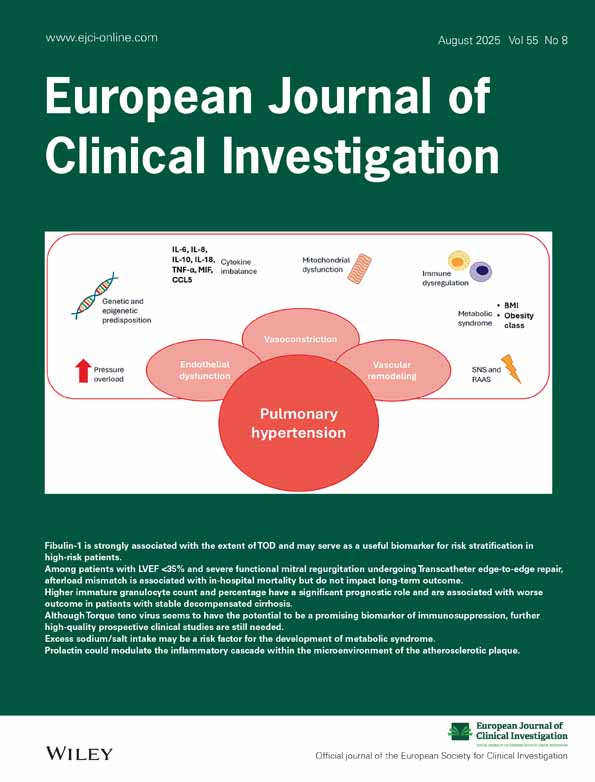Determinants of kallikrein proteolysis of apolipoprotein B-100 in human blood plasma
Abstract
Abstract. The formation of apolipoprotein B-74, a fragment of apolipoprotein B-100, in blood plasma in vitro is shown to occur only at temperatures below 15°C, and is promoted by exposure to glass and other surfaces known to activate factor XII. Removal of C-I esterase inhibitor from plasma permits formation of apolipoprotein B-74 at room temperature. These observations are consistent with conversion of prekallikrein to kallikrein by factor XII, and with evidence that kallikrein proteolysis in vitro is activated in the cold by alteration of its binding to C-I esterase inhibitor. Since the two proteolytic fragments of apolipoprotein B-100 produced by kallikrein digestion are identical to apolipoproteins B-74 and B-26, it is concluded that apolipoproteins B-74 and B-26 are in-vitro products produced in low density lipoproteins of normal plasma in the cold by kallikrein.




